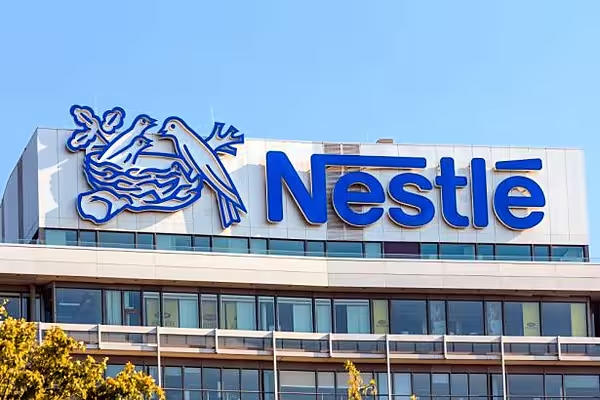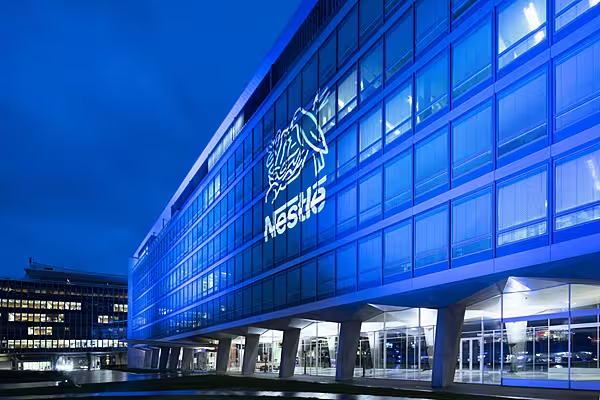Its not just Nestle that needs to do some heavy lifting.
Unilever NV has delivered a bad disappointment, missing analyst expectations for fourth quarter underlying sales growth and warning that there will be no let-up in the pressure on performance this year. Unilever's shares fell as much as 5 percent in London trading, the most for more than six years.
Long-standing chief executive Paul Polman's challenge looks a lot like that facing his new counterpart at Nestle SA, Ulf Mark Schneider.
Both need to reshape or rid themselves of legacy businesses and move into faster growing segments that tap into changing consumer tastes or demographic trends. But while Nestle's got the hope factor and the new man has yet to disappoint investors, Unilever's run out of excuses.
What is particularly worrying is that Unilever's personal care arm, which has been one of its top divisions, expanded at its slowest rate for two years. The company has a lot of eggs in this basket -- this is where it's been acquiring, paying up for premium products such as Dollar Shave Club and high end hair care brand Living Proof.
It says the new businesses are doing well: instead it’s the demonetization in India and difficult conditions in Brazil that are to blame for the broader malaise at the division. Some of the difficulties here could improve -- for example there could be some pent-up demand in India as consumers become more accustomed to the new policy.
But given lackluster organic growth, there's more attention on fattening the margin. That worked in 2016, though with commodity prices rising and currency gyrations, expanding the margin isn't straightforward either.
And the weakness in these big international markets puts yet more focus on innovation in developed regions. Credit to Polman for the push into more cutting-edge products, and other items appealing to millennials, such as fancy teas. Polman says Unilever will be even more aggressive in these aims in the future, and at least Unilever has plenty of financial firepower for the needed investment: free cash flow was 4.8 billion euros ($5.2 billion) in 2016, and there will also be 1 billion euros of cost savings by 2019.
But there's much more to do. The company faces headwinds from its exposure to the black tea market, where the classic cuppa's no longer in vogue, and in spreads, where demand is declining.
That looks an awful lot like Schneider's challenge: tackling the slow-growth arms of U.S. frozen food and confectionery, and investing in faster-expanding segments of the market that span food and pharmaceuticals. He arrived at Nestle on Jan. 1, and hasn't revealed his plans yet, though there could be early clues when the company reports results next month.
Gadfly has long argued that Unilever should cut the fat -- literally -- and divest the spreads arm. It continues to believe this business is more valuable inside the company than out -- cash profit rose by 80 million euros last year, and it held market share. It doesn't seem to be deteriorating much further, but it's still a problem child. Polman says it's still subject to assessment, but he should stop evaluating and take action.
Nestle trades on a forward price to earnings ratio of just over 20 times. Since the middle of last year it's pulled notably ahead of Unilever, which is now on 18.7 times.
Investors clearly have more faith in Schneider when it comes to restructuring. It is up to Polman to show that they are wrong. Otherwise, if as expected, he decides to step down in the next few years, there could be yet another parallel with Nestle: leaving it to the newbie.
This column does not necessarily reflect the opinion of Bloomberg LP and its owners.
News by Bloomberg, edited by ESM. Click subscribe to sign up to ESM: The European Supermarket Magazine.














